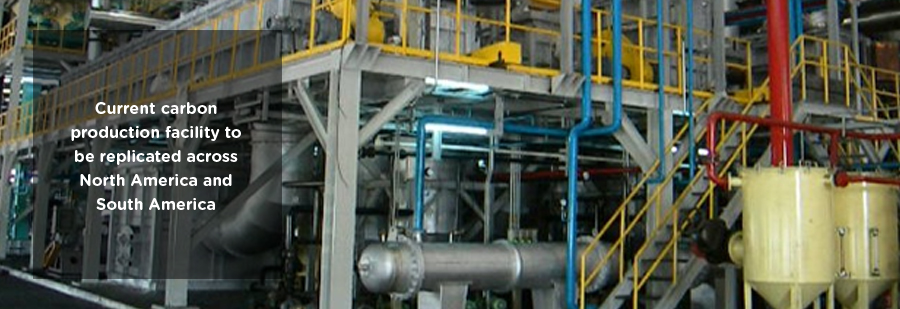
 |

|
|
|
ECI's Patented Technologies Continuous Flow Pyrolysis Many scientists and entrepreneurs have been enamored by the ability to use a seemingly simple technology called pyrolysis to "reverse engineer" carbonaceous matter. Pyrolysis is a thermochemical decomposition of organic material at elevated temperatures in the absence of oxygen. It involves a simultaneous change of chemical composition and physical phase, and is irreversible. The word is coined from the Greek-derived elements pyro "fire" and lysis "separating". The term "fire" however is a misnomer as the only combustion which takes place in pyrolysis is the burning of fuel to provide thermal energy to the process. What has evaded scientists and entrepreneurs up to today is the ability to operate an automated pyrolysis process at industrial scale through the loading of feedstock and the removal of by-products while maintaining a vacuum on a continuous basis. Batch pyrolysis processes which are widely used in the chemical industry around the world have proven to be economically inefficient when applied to tire recycling. The fundamental problem with tire pyrolysis batch processing is downtime. Once a batch has been pyrolized, the pyrolysis chamber must be cooled, unloaded, refilled and then reheated to the high temperatures necessary for pyrolysis to be effective. This process is time consuming and wastes a lot of energy. A major shareholder in ECI designed and built the above facility which operates modular tire pyrolysis lines on a 24/7 closed loop commercial basis. To the best of our knowledge, this is the first plant to accomplish this feat at commercial scale over an extended period of operation. The patented process allows feedstock to be loaded into the pyrolysis chamber without the presence of oxygen thereby maintaining continuous optimal conditions for pyrolysis, and all the while without changes in operating temperatures. The resulting closed looped and continuous tire recycling pyrolysis process provides optimum use of the plant's capital equipment and therefore a maximum return on the capital invested. Additionally, the plant design, which is modular, allows for increments in scrap tire throughput of 10 tonnes per day, matching the regional aspect of the tire recycling business where plants must be sized to match scrap tire supply. ECI owns the patents to this process in North America and South America. Pyrolysis By-Products The by-products of pyrolysis are by its definition the inputs of the carbonaceous feedstock that is loaded into the process. These are most typically carbon and hydrocarbons. For scrap tires, the by-products are steel, oil, carbon and syngas. Tire pyrolysis carbon and hydro-carbons, while certainly valuable, are lower value and/or fluctuating prices commodities and as such do not allow for a consistently profitable business given the capital equipment required in such an operation. Even when subsidized by tipping fees for accepting the tires, scrap tire recycling has historically been a low margin business with marginal returns on invested capital. Perhaps this is why approximately fifty percent of all scrap tires in North America are still used by cement manufactures as tire derived fuel. ECI's competitive advantage is substantially enhanced by its exclusive rights to this 24/7 tire pyrolysis technology. However, the key to its successful business model is marrying this cost-efficient processing technology with the development of higher value applications for its by-products, such as the patented waste tire derived activated carbon EcoPAC-S® that ECI management has developed over the last few years. These higher vale applications are Triple GreenTM as they are:
|